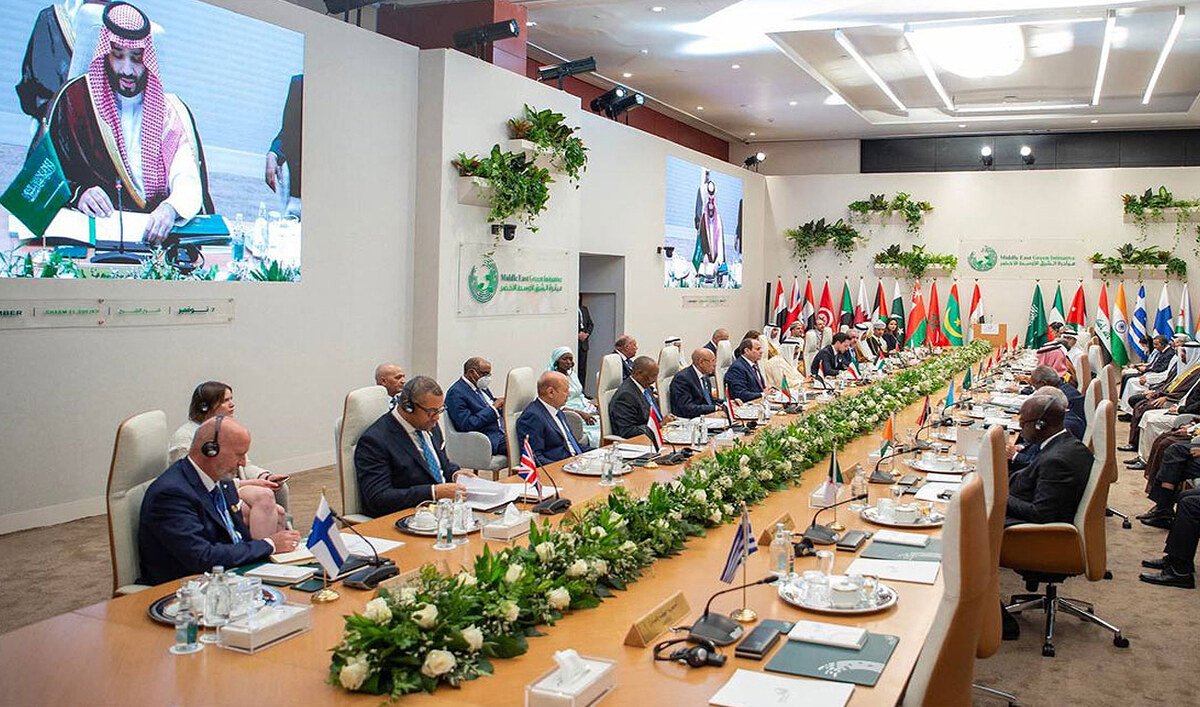ISLAMABAD: Pakistan’s federal cabinet on Thursday ratified the charter of the Middle East Green Initiative, announced in 2021 by Saudi Crown Prince Mohammed bin Salman with the aim to secure over $10.4 billion for an investment fund and clean energy project as part of efforts to reduce regional carbon emissions.
At the time of the plan‚Äôs announcement, the crown prince said the Kingdom, which is the world‚Äôs top oil exporter, would contribute 15%¬Ýof the funds and would work with other states and development funds on the funding and execution of the initiatives. The Middle East Green Initiative aims to reduce carbon emissions from regional hydrocarbon production by more than 60%. It also plans to plant 50 billion trees across the Middle East and restore an area equivalent to 200 million hectares of degraded land. The initiative will help reduce global carbon levels by 2.5%.
‚ÄúThe federal cabinet ratified the charter of the Middle East Green Initiative on the recommendation of the Ministry of Climate Change,‚Äù a statement released by the office of Pakistani Prime Minister Shehbaz Sharif said.¬Ý

In this file photo, taken on November 7, 2022, shows Saudi Crown Prince Mohammed bin Salman speaks during the second edition of the Middle East Green Initiative Summit in Sharm El Sheikh, Egypt. (Radio Pakistan/File)
“The meeting was informed that Pakistan is one of the founding members of the said charter. Under this initiative, 200 million hectares of land area will be restored and 50 billion trees will be planted.”
Climate change is a major issue in Pakistan, causing extreme weather, droughts and rising temperatures. Although Pakistan contributes only about 0.88%¬Ýof the world‚Äôs greenhouse gas
emissions, it is the fifth most vulnerable country to climate change.
Pakistan has experienced significant temperature increases over the past few decades. The average annual temperature has increased by about 0.5°C since the 1960s. By 2050, it is projected that the average temperature will rise by an additional 1.3°C to 1.5°C.
Over the past years, the intensity of climate-induced disasters in Pakistan has significantly increased. With over 1,700 deaths and 12,000 injuries, the World Bank reported the economic losses and reconstruction in flood-hit areas of Pakistan in 2022 to be over $40 billion.
An increase is also projected in the number of people affected by flooding, with a likely increase of around 5 million people exposed to extreme river floods by 2035–2044, and a potential increase of around 1 million annually exposed to coastal flooding by 2070–2100.
Rainfall patterns are becoming increasingly erratic. While annual precipitation is expected to decrease in some regions, others may see more intense and unpredictable rainfall events. This variability is already contributing to extreme weather events like floods and droughts.
The World Bank estimates that the combined risks of extreme climate-related events, environmental degradation, and air pollution are projected to reduce Pakistan‚Äôs GDP by at least 18 to 20%¬Ýby 2050, which will stall progress on economic development and poverty reduction.
















